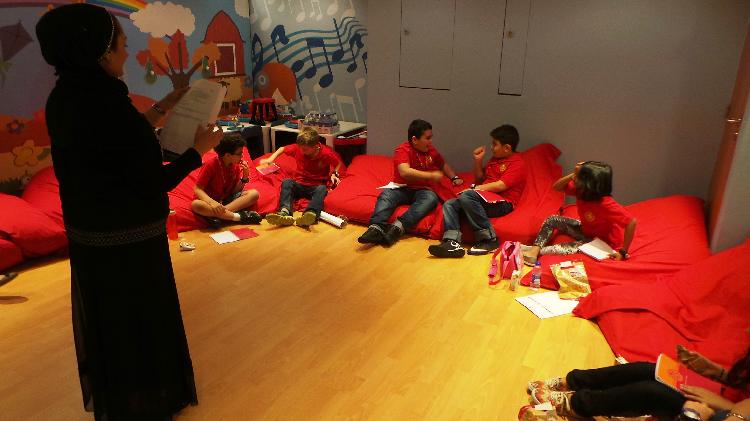
Here’s what the children of Kuwait want from adults
Kuwait’s younger generation wants to see adults keep their promises, build trustworthy relationships and give children enough room for independence and freedom, while acting as a support system by providing appropriate guidance whenever needed.
That is one of the main findings of a research conducted recently by KidZania Kuwait, in collaboration with child psychology experts at the Fawzia Sultan Rehabilitation Institute (FSRI). The research brought together 20 children between the ages of 7-12 in a focus group to discuss their perceptions of family ties and their social surroundings.
When asked to imagine a world without the presence of adults, children participating in the research said it would create options for more independent choices and actions by children, but it would also be “chaotic”, as the presence of adults is necessary to maintain balance and create order.
A young participant also expressed his concern if the world was to be ruled solely by children: “Who is supposed to drive me around to places? Where do I get money from? Who will send me to the doctor when I feel sick?” he said.
According to the group, the most admired privilege that adults enjoyed was independence and the ability to make their own decisions. The most appreciated adults were teachers and celebrities like Angelina Jolie, who regularly participated in humanitarian activities. The children also showed strong altruistic qualities as they proposed ideas on community service projects including helping the less fortunate and animals in shelters, creating a greener environment and promoting tolerance towards all members of the society.
The group stressed the importance of resolving conflicts with adults in a more diplomatic manner to maintain healthy relationships. For example, when parents say “no”, they would like to be told the reasoning as to why and not be given reasons like “because I said so” or “because I am the adult.”
Five key steps to build better relationships with your kids
As parents often ask, “How can I empower my children with more independence while keeping them safe, the findings of the focus group led to building five key steps recommended by FSRI’s psychologists to enhance nurturing healthy parental relationships with children:
Foster an open dialogue: Communicating openly with your children helps establish and maintain a healthy parent-child bond. Tell your children what you expect of them, and in turn, understand what they would like to get from you. Make sure to “stop and listen” - make an eye contact and respond, and pay attention to non-verbal communication such as body language.
Be transparent in your communication: Transparency and clarity are key in building trust and open communication as well as in avoiding situations of misunderstanding with your children. Use “I” statements: for instance, “I felt happy when you finished your homework on time” or “I liked it when you completed your chores without reminders.”
Stick to your promise, and promise what you can keep: As parents, you need to be aware of the impact promises have on a child. Promises play a pivotal role in fostering children’s trust in their parents, and, in turn, help children learn about integrity by following the good examples their parents set.
Practice the art of disciplining: Having pre-determined expectations and consequences for all behavioral choices establishes predictability. To deal with undesirable behaviors, one way to discipline your children is by setting restrictions such as time away from their favorite activities or access to certain privileges including television, electronic gadgets, playing out with their friends and the likeness. Remember that consequences need to be immediate and pre-determined.
Implement social and emotional interaction: Social interaction between adults and children is of prime importance. Right from infancy onwards, children’s development and relationships are dependent on social interactions. Help your children acquire the set of skills needed to express themselves freely by understanding their emotional needs. Make sure you encourage them to express their emotions and validate those.
For example, when your child says “I feel sad,” validate it by acknowledging how he/ she feels and by showing sufficient support. “When children’s emotions are validated, they feel comfortable enough to further share how they feel,” said Saima Bhatti, Child Psychology Expert at FSRI. “Similarly, express your emotions to them; children learn best though modeling.”
“We are proud to be pioneers in conducting research to understand the young generation’s perception of their social surroundings and the world around them,” said Fernando Medroa, Vice President of Leisure and Entertainment at M.H. Alshaya Co. “Being a child-centric brand, it is important for us at KidZania to establish a deep understanding of our young visitors and their entire generation to cater to their different needs. Aspects like how they interact with their parents and friends, what their preferences and dislikes are, what topics attract them most and how they enjoy their time, give us a better insight of their perception of family ties.”


























